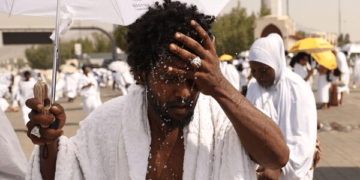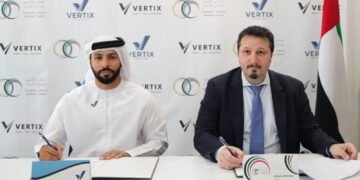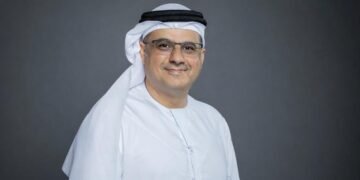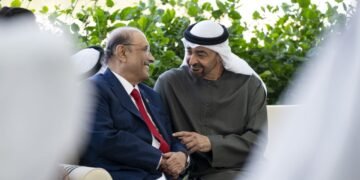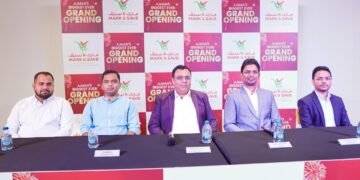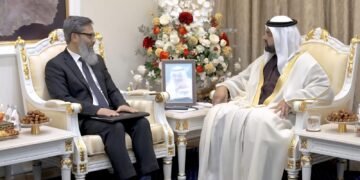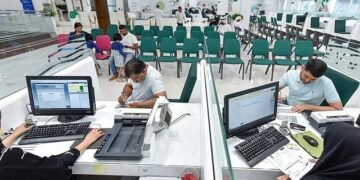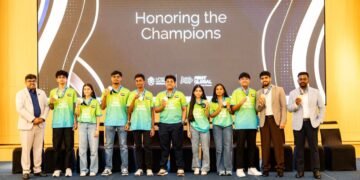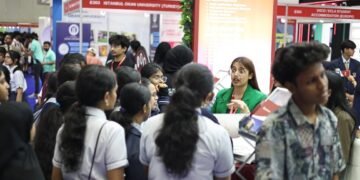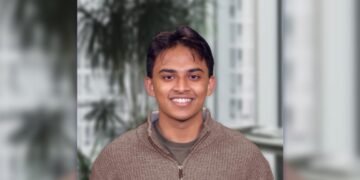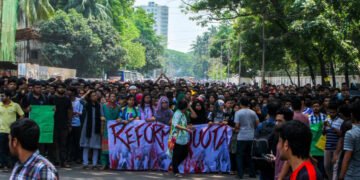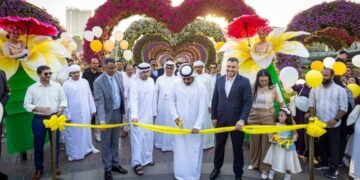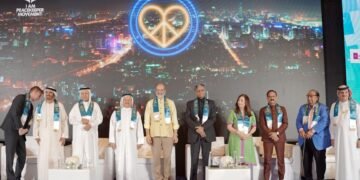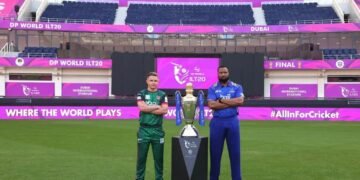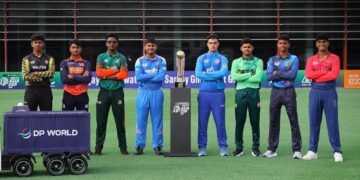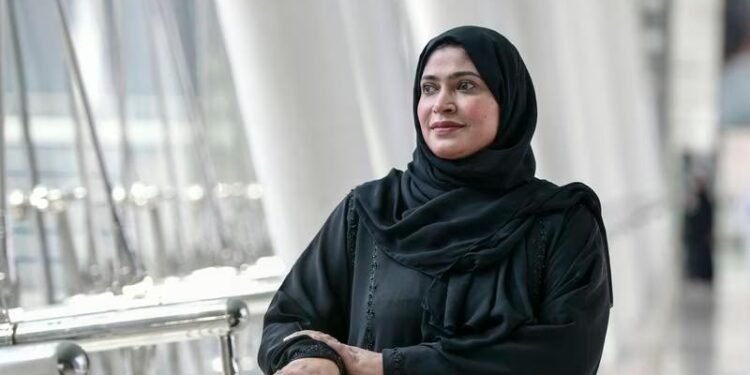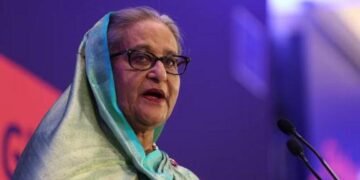Ebtesam Al Shehhi suffered for 20 years from a condition that caused blindness and loss of mobility
An Emirati woman who became the first patient in the world to receive a revolutionary treatment for a rare autoimmune disease said she had been given a new lease of life.
Ebtesam Al Shehhi, 45, from Ras Al Khaimah, suffered for more than 20 years from neuromyelitis optica spectrum disorder (NMOSD), which affects about 250,000 people around the world.
The disease attacks the central nervous system and can lead to vision loss, paralysis, respiratory complications and premature death.
There is no cure, although some treatments may help to prevent relapses that can cause progressive disabilities.
Ms Al Shehhi began to develop symptoms in 2001, when she was 23 and pregnant with her first child.
Misunderstood disease
Ms Al Shehhi said she visited doctors abroad to seek answers, only to receive a different diagnosis each time.
“My symptoms always flare up after I give birth. After my first child, I lost sight in both eyes,” said Ms Al Shehhi, now a mother of four.
After a course of cortisone, she regained her sight and her symptoms disappeared. But with each subsequent pregnancy, her health deteriorated.
When Ms Al Shehhi visited doctors in Spain, Russia and Thailand, they told her she had a blood disease.
“I was given vitamins and immune boosters, and one doctor said that my blood needed to be filtered,” she said.
In 2019, after struggling to sleep for a week due to headaches, her uncle took Ms Al Shehhi to Sheikh Shakhbout Medical City in Abu Dhabi. Doctors there said she had NMOSD.
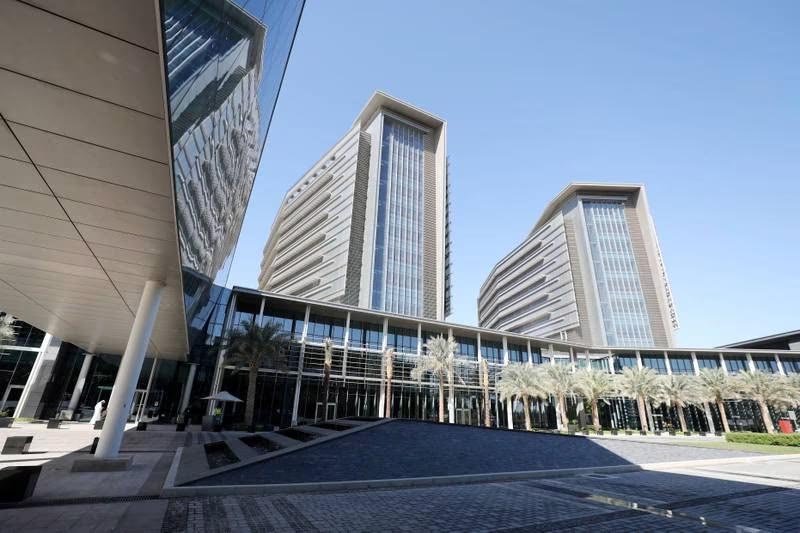
“I was relieved that I finally knew what I had, but at the same time I didn’t know what it was. The first thing my husband said to me was, ‘Don’t Google it. We will get through this together,'” she said.
Doctors at SSMC treated Ms Al Shehhi with ravulizumab, which is injected into the vein. The drug works by slowing down a NMOSD patient’s overactive immune system and reducing the breakdown of red blood cells.
“Ebtesam is the first patient in the world to receive this medication outside a clinical trial and we are very excited to be offering it to her,” Dr Ahmed Shatila, consultant neurologist at SSMC, told:
Three NMOSD patients are being treated at his clinic, he said.
“I think we need to understand that this is a very rare disorder, but it is also extremely debilitating and potentially fatal,” Dr Shatila said.
“What we are looking forward to now is having a registry for [NMOSD] patients.
“Awareness is crucial. This is not multiple sclerosis. It is much more serious and yet many patients are misdiagnosed because the initial symptoms are very similar. It is crucial for healthcare professionals to be aware of it.”
A glimmer of hope
Dr Shatila said ravulizumab offered hope to those with the condition who previously faced limited treatment options.
“The evolving and progressive nature of the UAE’s healthcare system results in patients accessing cutting-edge and pioneering treatments,” he said.
While the cost of the treatment was not disclosed, Ms Al Shehhi’s treatment was covered by her medical insurance plan.
“I feel great for the first time. Previously I would walk a few steps or go to the mall with my children and get so tired,” she said.
“Every movement was such a huge effort. I felt like such a burden on my family because I couldn’t do or go anywhere.
“I couldn’t sleep and had very bad headaches. Now this is all gone.”
Source: The National






